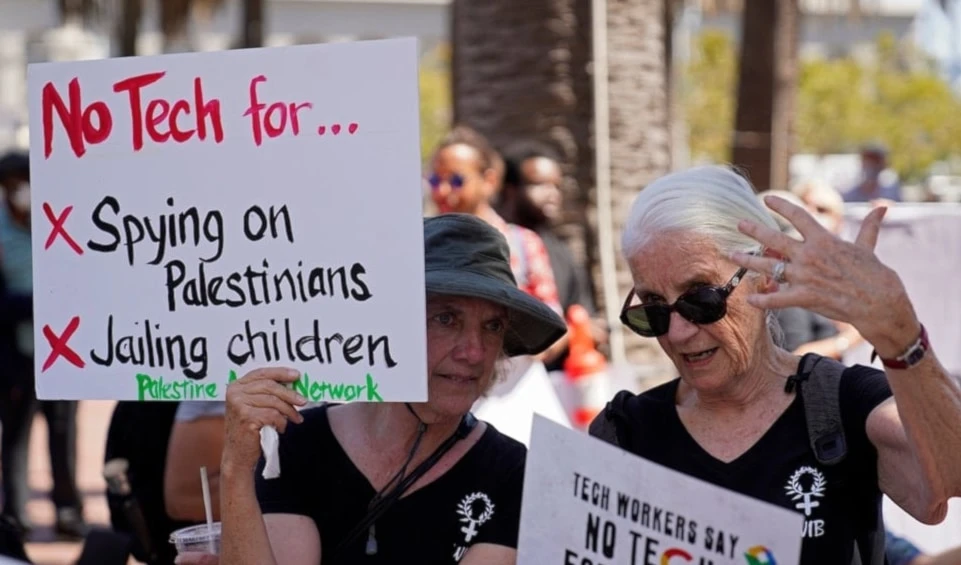Could AI extend lifespans while fueling despair and joblessness?
The Financial Times on Friday cautioned that while AI promises medical breakthroughs such as longer lifespans through technologies like DeepMind's AlphaFold, it could also fuel widespread joblessness and social isolation that shorten lives, creating a "life expectancy tug of war."
-

Children walk along a sidewalk, Thursday, June 15, 2017, in New York. (AP)
The Financial Times warned on Friday that artificial intelligence could become a double-edged sword for humanity, extending life for some while shortening it for others, as economic and social disruptions threaten to offset medical breakthroughs driven by the technology.
In his column, John Burn-Murdoch argued that while AI is transforming science, public debate remains dominated by "hallucinations, slop, exam cheats and robot speechwriters." He pointed instead to the Nobel Prize-winning work of Google DeepMind’s Demis Hassabis and John Jumper, whose AI system AlphaFold has revolutionized protein folding and "promises to hugely expedite drug discovery and development." OpenAI, he noted, has joined the race with a smaller language model focused on longevity science, sparking bold claims about "radical life extension thanks to AI."
Social Fallout
Yet Burn-Murdoch cautioned that advances in biotechnology tell only half the story. Drawing on new data from the Institute for Health Metrics and Evaluation (IHME), he observed that although mortality rates among older people continue to decline, deaths among younger and middle-aged adults are rising across the US, Canada, and the UK, pushing overall life expectancy toward stagnation.
This wave of premature deaths is often blamed on "deaths of despair," but recent studies suggest the main culprit is long-term joblessness and social isolation, not psychological distress alone. Burn-Murdoch highlighted that the hardest-hit cohorts, such as Scots who came of age during the mass unemployment of the 1970s and 1980s, faced "large negative employment shocks" that left lasting scars.
Digital isolation
He warned that future waves of AI-driven automation could deepen the same structural wounds. "If future iterations of today’s large language models do, one day, bring about joblessness at scale," he wrote, "it will not be a passing spike." Rather, the permanent loss of work could destroy careers, erode social contact, and undermine mental and physical health, harms that "even a substantial universal basic income might not be sufficient to replace."
Burn-Murdoch added that growing reliance on AI for conversation could further isolate people, noting evidence that digital platforms already contribute to rising rates of relationship breakdown.
He concluded that humanity may soon face "a life expectancy tug of war: AI-enhanced health for those who make it into their silver years, and AI-elevated vulnerability for the young and middle-aged." Policymakers, he argued, must act now to prevent the technology from "eroding the very fabric of social life it promises to improve."
Read more: Destruction of Gaza’s health system is genocide: PHRI

 3 Min Read
3 Min Read










